Nothing rattles the photography community faster than talking about lens protectors. Some swear by it, while others wouldn’t touch it with a 10-foot pole. What is the rage about, and what is the approach you should take with lens protectors?
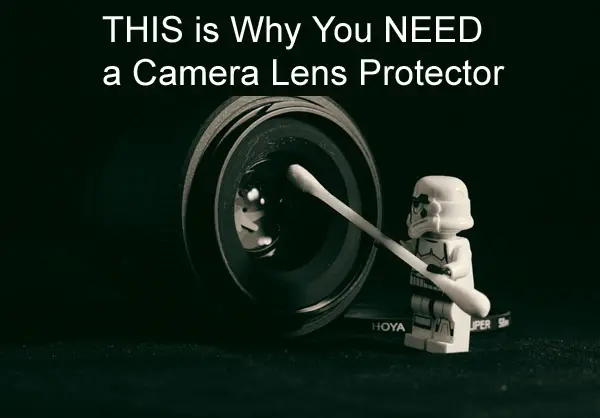
We will discuss all of them in this article.
What is a Lens Protector
Lens protectors are pieces of glass that can be screwed on top of your actual lens. They simply add a layer on top of your existing lens element, which provides some benefits.
Lens protectors are sometimes also referred to as filters, as many times, filters are used as lens protectors as well. The most common lens protectors/filters that are used by photographers are UV filters. I’ll use the term filters/protectors interchangeably throughout the article.
Unlike some other photography subjects, using (or not using) lens protectors is not a black and white choice. It is a personal choice, and whatever I am going to share in this article is my personal opinion. Some people may agree with me, while some might not. There is no right or wrong opinion here.
Should You Use Lens Protectors?
As you’ve probably guessed from the title of the video, I am in the camp that recommends using lens protectors. So, in my opinion, you should be using lens protectors on your lenses. Which one, you might ask? That is not very important. Both a UV filter or a clear glass protector works fine.
But why do I recommend lens protectors? In other words, what does a lens protector offer that you need to put it on your lens in the first place? And if there is a clear advantage, then why is the community so divided on it?
What Does A Lens Protector Offer?
Lens protectors offer many features. But, most of those features translate to 1 common benefit—protection of your lens.
No matter how careful you are, you are bound to have experienced it yourself. A little sand on the beach, a small bump against the wall, fog, water droplets, dust — lenses have to bear them all. And I didn’t even talk the time you accidentally drop your lens. Yikes!
The damage to a lens in all these scenarios can be minimized with the use of a lens protector. Simply screw one on, and you can be a little rougher on your lenses while also having more peace of mind. With a cheap protector, you’ll be protecting your expensive lens from bumps, grit, moisture, sand, dust, and a bunch of other things.
If you shoot in an extreme condition that can damage your lens, the lens protector will take most of the beating, protecting your lens. No wonder lens protectors are called “cheap insurance for lenses”.
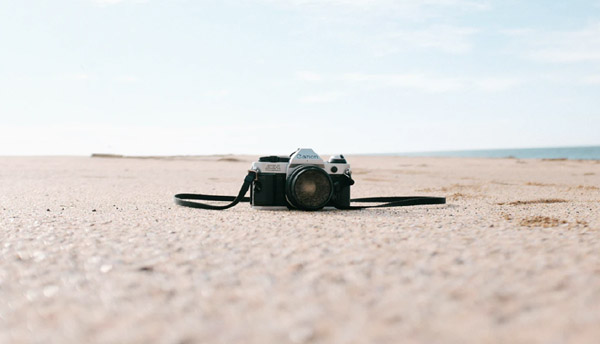
The image above is a perfect example of when to use a lens protector.
Why Some People Disregard Lens Protectors (and why they’re wrong)
There are many arguments against lens protectors, and 2 of the most common ones that I hear the most are as follows.
Argument 1 – Lens Protectors Don’t Offer Any Protection
Some people say that lens protectors don’t work at all. They say that lens protectors are fragile, break easily, and are much weaker than the lens front element.
My answer to that is — of course, a cheap lens protector is not strong as a carefully engineered piece of glass with several coating that costs hundreds, even thousands of dollars. And it is not designed to be.
Most of the people who claim that lens protectors are weaker than lenses themselves ignore a simple fact. You don’t compare a lens protector to a lens. You compare the strength of the lens protector and the lens combined against the lens.
Visit a few forum discussions, and you’ll find a common video being shared in which a photographer conducted tests on trying to break lens protectors and lenses. After breaking a few lens protectors and failing to break lenses with the same force, he concluded that lens protectors are not worth it. Here is the video if you’re interested:
If he conducted the same tests with the lens protectors attached to the lens, the conclusion would have been quite different.
Even if you don’t watch the video, it is common sense that adding an additional layer of protection on something will enhance its protection. If you were to get a slap on the wrist, would you prefer to wear a shirt to protect yourself, or would you claim that your skin is much stronger than the cloth that makes the shirt?
Argument 2 – Lens Protectors Degrade Image Quality
The other common argument against lens protectors is that they reduce image quality.
Here, I’d agree with the other camp. Lens protectors do affect image quality for sure, but degrade is a much stronger word than what I’d use.
Here the result that you’re going to experience will largely depend on the type of filter you’d use. Although they are cheap, not all filters are made equal. A good lens protector will affect image quality just a bit, but nothing that you can’t fix in post. And nothing that you’d observe in an instant in an image.
Most of the good filters make the final image a tiny-bit soft, and you can fix it with some gentle sharpening. Bad filters, however, may cause all sorts of issues with your image, and I’d not recommend that you use them.
How To Select A Good Lens Protector
As I’ve clarified, you get all the advantages of a lens protector and almost none of the downsides if you use a good lens protector. But, how do you find out if the lens protector that you’ve been eyeing is actually good? There are many things to consider, and I’d suggest that you watch the following video to understand those factors better.
How Lens Protectors Affect Image Quality
One of the biggest arguments against using filters is that they affect your image quality. After all, who wants to have a cheap filter ruining the image quality of a lens that costs hundreds or even thousands of dollars, right?
While I agree with the sentiment, the reality is that filters do not affect the quality of your images. Let me clarify before I get some angry comments. A good filter should not affect the quality of your image.
There have been numerous tests done by various photographers, and almost all of them reached the same conclusion. If you choose a good filter (which usually means a decent $50 one), then there is almost no difference in image quality. Some people have reported a negligible softness in the images, but nothing that a bit of post-production wouldn’t solve.
When Not to Use a Lens Protector
Even with whatever I’ve said, there are a few use cases when taking the protective filter off makes the most sense. Here are some of those scenarios.
When image quality is of Utmost Importance
As we’ve seen already, using a lens protector will affect your image by a negligible amount. But, there might be scenarios where you want to squeeze out every ounce of image quality from your camera’s sensor. In that case, it is best to take your filter off.
When Shooting Directly Into a Light Source
When you have bright light sources in your scene, whether it be the sun or other bright lights, it is usually a good idea to take off your protective filter. Using any filter on top of your lens in that scenario usually causes excess flaring, which doesn’t look good.
When You Want to Use Another Filter
One scenario where the image quality does get affected with filters is when you start stacking them. If you need to shoot with an ND filter, a polarized, or something similar, it would be recommended to take that filter off. If you don’t, you’d probably experience some aberration, vignetting, loss of sharpness, or a combination of these factors.
When You’re Using a Lens Hood
Obviously, you can’t use any filters when you’re using a lens hood.
When You’re Using an Ultra-Wide Lens
Most Ultra-wide lenses have a curved front element, which makes them incompatible with any filter or protector.
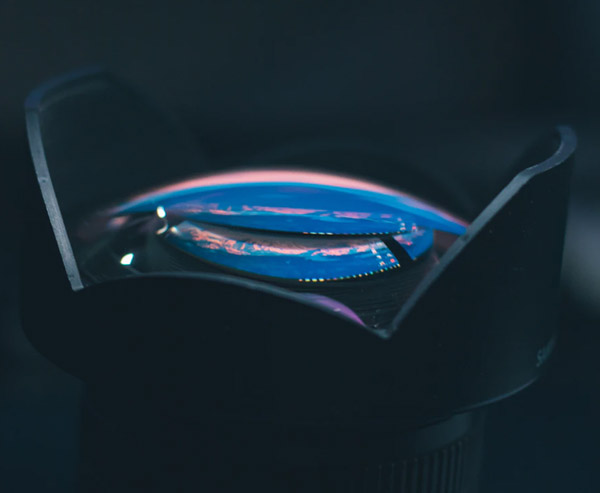
What Are Some Good Lens Protectors
While there are many good brands, here are a few brands that I personally recommend. They are available in varying filter sizes, so pick the one that fits your lens.
- B + W UV Filter
- Hoya UV Filter
- Amazon Basics (Cheap, OK performance)
- Tiffen UV Filter
- Cokin UV Filter
Final Thoughts
Photographers worldwide are still “filtered” on whether they should be using filters on their precious lenses or not. I hope that I was able to make a positive case for using these inexpensive filters to protect your lenses.
Once again, whatever I wrote about is what I think, and you’re free to disagree with me. In fact, I’d encourage you to tell me what you think in the comments below.
Click the following link to learn how DSLR lenses work.

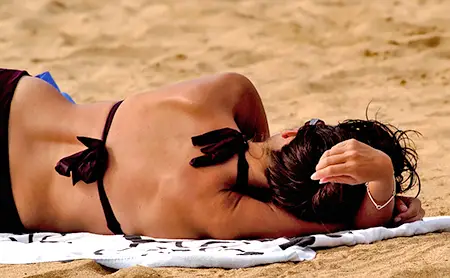
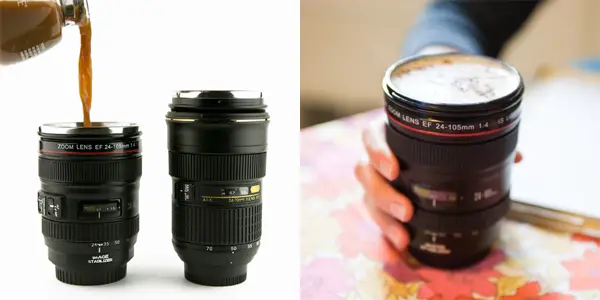
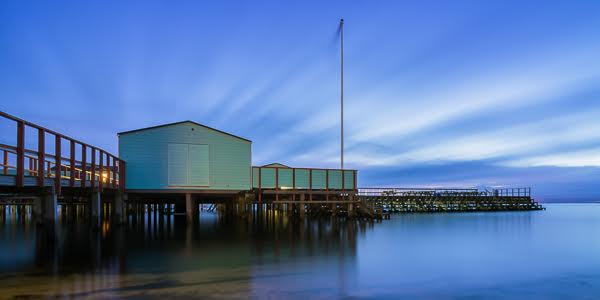





4 comments